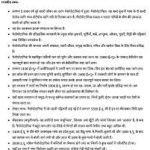Building muscle is a goal for many who want to improve their physique, strength, and overall health. Whether you’re new to fitness or a seasoned athlete, understanding how to properly build muscle is essential for achieving your desired results. With guidance from WellHealthOrganic, you can access expert-backed tips and strategies for effective muscle-building. Let’s dive into the fundamental principles and actions that lead to muscle growth.
1. Understand the Basics of Muscle Growth
Muscle building, or hypertrophy, is the process where muscle fibers are stressed through exercise, causing microscopic tears. When the body repairs these fibers, they grow back thicker and stronger. The key to effective muscle growth is progressive overload, which involves gradually increasing the weight or intensity of your exercises over time.
2. Focus on Strength Training
The foundation of any muscle-building program is strength training. Weightlifting exercises like squats, deadlifts, bench presses, and pull-ups are some of the best ways to stimulate muscle growth. Incorporate compound exercises, which target multiple muscle groups at once, to maximize your efforts and save time.
Tips for Effective Strength Training:
- Progressive Overload: Gradually increase the weights, sets, or reps as you get stronger.
- Proper Form: Always maintain proper form to prevent injury and get the most out of your workouts.
- Rest Between Sets: Rest for 60 to 90 seconds between sets to allow your muscles to recover.
3. Nutrition Plays a Key Role
To build muscle, you need to fuel your body with the right nutrients. A well-balanced diet rich in protein, healthy fats, and carbohydrates is essential for muscle recovery and growth. Proteins are the building blocks of muscle tissue, so it’s crucial to consume adequate amounts throughout the day.
Protein Intake:
Aim to consume 1.6 to 2.2 grams of protein per kilogram of body weight daily. Some good sources of protein include chicken, turkey, lean beef, eggs, tofu, lentils, and Greek yogurt.
Healthy Fats and Carbs:
Fats are vital for hormone production, including testosterone, which plays a role in muscle building. Carbohydrates provide energy for your workouts, helping you to perform at your best. Whole grains, fruits, vegetables, and healthy fats like avocados, nuts, and olive oil are great additions to your diet.
4. Stay Consistent with Your Training Routine
Building muscle takes time, and consistency is crucial. Develop a training routine that you can stick with over weeks and months. For optimal results, aim to train each muscle group at least twice per week, using a variety of exercises to ensure you’re targeting different parts of the muscles.
5. Recovery is Essential
Rest and recovery are as important as your workout routine. Without proper recovery, your muscles won’t have the opportunity to repair and grow. Aim for at least 7-9 hours of quality sleep each night to support muscle repair.
Additionally, include rest days in your routine. Overtraining can lead to injury and hinder muscle growth. Stretching, foam rolling, and yoga can also help reduce muscle soreness and improve flexibility.
6. Supplement Wisely
While supplements can’t replace a solid diet and exercise plan, they can help support muscle growth. Protein powders, creatine, and branched-chain amino acids (BCAAs) are popular supplements that may aid in muscle recovery and performance.
- Protein Powders: If you’re not getting enough protein from food, a protein supplement can help meet your daily intake goals.
- Creatine: This supplement can help improve strength and muscle mass by enhancing your ability to perform high-intensity exercises.
- BCAAs: These essential amino acids may help with muscle recovery and reduce soreness after intense workouts.
7. Track Your Progress
To stay motivated and see where you’re improving, it’s essential to track your progress. Keep a workout journal to note the weights you’re lifting, the sets and reps completed, and any physical changes you observe. Tracking your progress not only helps you stay on track but also allows you to adjust your workout routine as needed.
8. Stay Hydrated
Water plays an important role in muscle recovery and performance. Staying hydrated helps maintain energy levels during workouts and supports the body’s natural processes, such as digestion and nutrient absorption. Aim to drink at least 8-10 cups of water per day, and more if you’re engaging in intense physical activity.
9. Mind Your Mental Health
Building muscle requires patience, and it’s essential to maintain a positive mental attitude throughout the process. Mental health is linked to physical health, so managing stress and ensuring a healthy work-life balance is crucial. Meditation, breathing exercises, and engaging in hobbies outside of the gym can help you stay focused and motivated.
Conclusion
Building muscle isn’t just about lifting weights—it’s about consistency, nutrition, rest, and recovery. By following the expert tips outlined by WellHealthOrganic, you can create a well-rounded strategy for muscle growth. From strength training to proper nutrition and mental well-being, each element contributes to building a stronger, healthier body.






